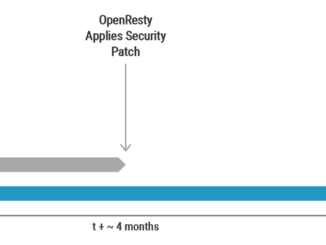
Ask NGINX | April 2019
Ask NGINX | April 2019 Every month, we take a moment to share the expertise of our team, and answer a number of great questions we’ve received from both our customers and open source users. These questions range from how to use our products in a variety of use cases to how to effectively integrate third‑party tools and platforms with NGINX. These answers come from our experts including technical architects, systems engineers, and our award‑winning customer support specialists. Does NGINX Plus work with Diffie‑Hellman? Yes. For those who don’t know: Diffie‑Hellman is a protocol used to create a secret key shared by two parties (this operation is commonly referred to as the SSL/TLS “handshake”). The two parties then use the key to encrypt subsequent communication between them. A more precise answer is that NGINX Open Source and NGINX Plus work with [ more… ]

